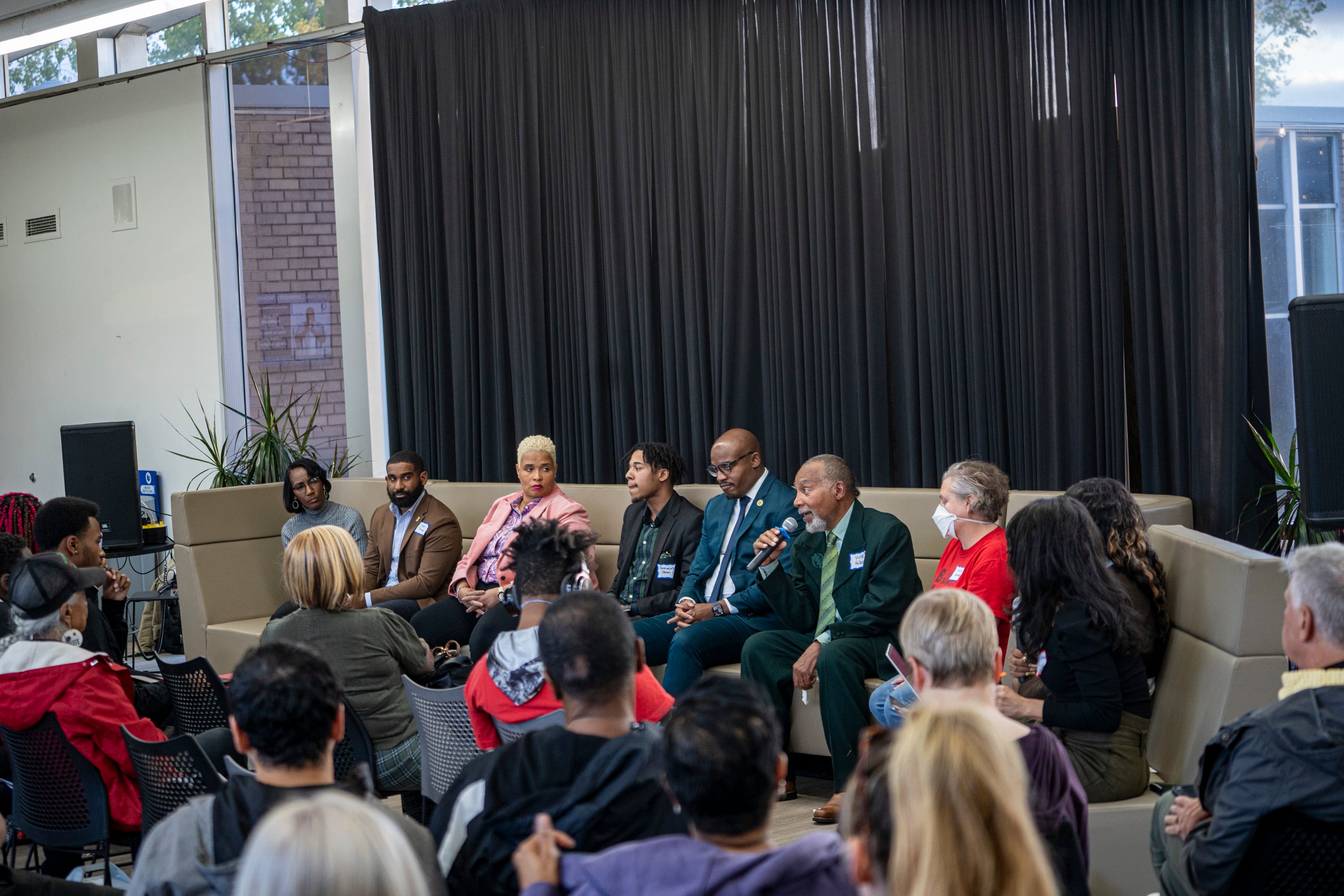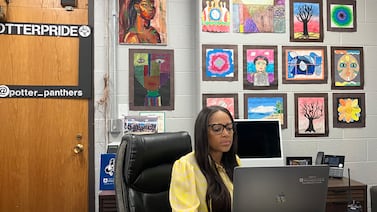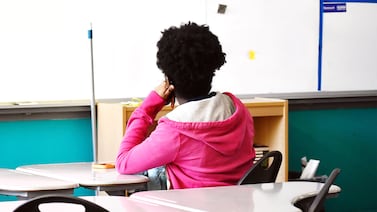Sign up for Chalkbeat Detroit’s free daily newsletter to keep up with the city’s public school system and Michigan education policy.
Nearly $230,000 in campaign contributions have poured into the Detroit school board race this year, with nearly all of the donations going to four candidates.
Donations reported by the pre-election filing deadline on Oct. 25 show the 22-candidate race for three at-large seats on the Detroit Public Schools Community District board are on track to exceed the last election cycle’s fundraising.
Most of the candidates have not yet reported any contributions or spending. The late contribution reporting deadline is Election Day, Nov. 5.
The new members will be tasked with addressing pressing issues, such as the district’s ongoing high rates of student chronic absenteeism, school climate and culture, low teacher pay, enrollment decline, and low academic achievement. The new makeup of the board could create division that may stall Superintendent Nikolai Vitti’s current approach to those issues — or allow it to move forward.
Sherry Gay-Dagnogo, the only incumbent in the race, is seeking reelection now that her first term on the board is coming up. Board members Sonya Mays and Misha Stallworth, whose terms are also ending, are not running for reelection.
Boyd White III, who is running for office for the first time, brought in the most money in the race by the Oct. 25 deadline. Wayne County records show White, an attorney and pastor, reported raising more than $86,000. White said Thursday he expects total contributions to reach around $100,000 by Election Day.
White said he knew his lack of name recognition within the DPSCD community meant he had to fundraise aggressively. His strategy was to reach out to people in his network, such as friends and family, for support.
White’s second-highest contribution, for example, came from his mother.
“If we win, it will be a total team victory,” he said.
Gay-Dagnogo raised the second-highest amount at more than $65,000, her state-level political action committee reported through the secretary of state’s office.
The board member said her county-level PAC raised $1,000 and she expects to raise a total of $75,000 by the end of the campaign.
Gay-Dagnogo said she almost didn’t run, but decided to seek reelection when she heard rumors Vice President Kamala Harris would become Democrats’ presidential nominee.
“I knew a lot of ground had to be made up.” she said of her late entry to the race. “But I wanted to be a part of heightening everyone’s awareness of the opportunity to have a Black woman as president. That has been my focus ever since.”
Gay-Dagnogo has held get out the vote rallies and events and has campaigned with other Democrats to stump for Harris.
Toson Knight, founder of the Caught Up mentoring program who is currently division director for prevention and diversion for Wayne County, reported more than $41,000 in contributions.
Sherisse Butler, senior vice president and executive director of City Year Detroit, raised more than $30,000.
District parent and nonprofit executive Monique Bryant’s campaign brought in more than $4,000. Of that amount, nearly half was donated by Bryant herself.
“This is my second time running and I knew that I was going to have to invest in myself to do what I’m trying to accomplish,” she said.
Gay-Dagnogo also invested in her own campaign, giving $6,000.
4 candidates get notable Detroit-area endorsements
Bryant is the only candidate who did not receive major endorsements to report raising more than $1,000 to the county.
White received endorsements from the Detroit Free Press, the Michigan Chronicle, the Detroit Regional Chamber of Commerce, and the Metro Detroit AFL-CIO.
Gay-Dagnogo was also endorsed by the Free Press, the Chronicle, and the AFL. Knight was endorsed by the Free Press and the chamber of commerce. Butler got endorsements from the chamber, the Chronicle, and the AFL.
Early reports don’t show much money flowing into the race from political action committees.
White did get several thousand dollars collectively from the Michigan Laborers Political League, the Michigan Action Political Fund, the Iron Workers Local 25 PAC, and the Friends of Janice Winfrey, who is currently the Detroit city clerk.
Gay-Dagnogo received $15,000 from the Committee to Elect Andrea Bradley, who is running for 36th District Court judge.
The chamber of commerce’s political action committee also donated to the campaigns of the candidates it endorsed, said its Vice President of Political Affairs Brad Williams. The contributions were not yet public in the county reporting system by Thursday.
“We see DPSCD as integral to our broader talent strategy,” said Greg Handel, the chamber’s vice president of education and talent.
A lot of money in the race came from individual donations by wealthy business leaders in Michigan who live outside of Detroit.
For example, Bloomfield Hills resident Bill Emerson, the president of Rocket Companies, contributed $5,000 to White and $3,500 to Knight. David Provost, former vice chairman of TCF Financial who lives in Birmingham, gave $5,000 each to the campaigns of White and Knight.
All of the candidates have largely spent their donations in the same areas: yard signs, printing, and online advertising.
White said his campaign spent around $50,000 on two mailers sent to Detroit residents. The campaign has also invested more than $2,200 on automated calls, more than $31,000 on yard signs, and more than $11,000 on graphic design.
Gay-Danogo has spent more than $30,000 on printing literature, more than $1,400 on food for volunteers, more than $3,300 on graphic design, and more than $2,800 on voter outreach.
This isn’t the first year the DPSCD board race has drawn hundreds of thousands of dollars in campaign support.
In 2022, the 18 candidates for four seats on the board brought in more than $235,000. At the time, LaTrice McClendon garnered the most financial support in the race. A political newcomer, she won a position on the board.
In 2020, candidates received more than $289,000 in campaign donations in the election for three board seats. Most of the money went to the three incumbents in the race, including Gay-Dagnogo.
The amount the incumbents raised in 2020 was far more than the $47,000 candidates for two open seats in 2018 brought in.
The first election year after state control of the district ended in 2016, candidates vying for seven open seats raised more than $290,000.
Hannah Dellinger covers K-12 education and state education policy for Chalkbeat Detroit. You can reach her at hdellinger@chalkbeat.org.







